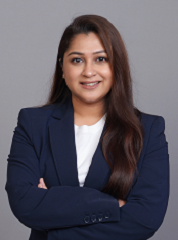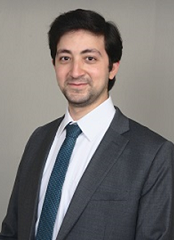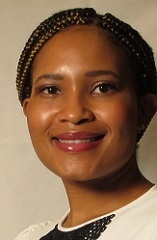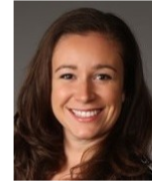Educational materials are provided by fellowship-trained neuroanesthesiologists or neurocritical care anesthesiologists:
- Neurosurgical Anesthesia Weekly Conference
- Intensive Care Rounds
- Weekly Grand Rounds
- Eight to 10 yearly Visiting Professor Lectures
- Bi-weekly Journal Club led by one attending (all are invited)
- Monthly review of a section from the annual neuroanesthesiology update from the Journal of Neurosurgical Anesthesiology (all section members are encouraged to attend)
- Fellows will present a topic related to neuroanesthesia at Grand Rounds during the year (30-minute presentation)
Because of the fluid nature of the non-elective and elective neurosurgical schedule, fellows will be provided exposure to a variety of cases every week. In total, fellows will have exposure to roughly the following:
- Equivalent of four months of intracranial surgery (NMH)
- Equivalent of four months of spine surgery (NMH)
- Equivalent of one month of neuroendovascular surgery (NMH)
- Equivalent of one month hands-on evoked potential monitoring
- Fellows may spend the equivalent of two to four weeks at Ann & Robert H. Lurie Children’s Hospital of Chicago to enhance their pediatric neurosurgical anesthesia skills
- One month of neurosurgical intensive care (NMH)
The 80-hour workweek rule will be maintained at all times. In general, fellows will work clinically on their own cases (with an attending physician) four to six days a month, with four non-clinical days per month devoted to the division’s research projects and the fellows’ individual projects.
Fellows will take home beeper call in an alternating fashion, covering only “major” neurosurgical cases (e.g., aneurysm clipping/stenting/coiling, awake craniotomies, cranial tumors and acute spinal cord injuries) within 72 hours of injury. Hours worked during a call shift will count toward the fellow’s 80-hour work week.
Fellows will work solely under the supervision of the attending physician at times. At other times, they will have a resident working with them, which provides the fellows with teaching and supervisory opportunities. Both residents and fellows are supervised by their attending physicians. Fellows will not take call at either Ann & Robert H. Lurie Children’s Hospital of Chicago or in the neurointensive care unit.
Fellows actively participate in multiple clinical research projects, assisting with patient enrollment and data collection under the guidance of principal investigators. A faculty member also mentors each fellow to develop an individual research project aligned with their interests.
Through this dual approach, fellows gain foundational experience in:
- Preparing and submitting research protocols to the Institutional Review Board (IRB).
- Conducting clinical research, including compliance documentation.
- Collaborating with statisticians to interpret data.
- Presenting research through abstracts, conferences and manuscripts.
Fellow-faculty pairings are thoughtfully arranged based on shared research interests, following discussions with the Chief of Neurosurgical Anesthesiology and the Director of Neuroanesthesia Research.
For fellows pursuing a research-focused career with potential extramural funding, opportunities exist to collaborate with funded investigators in translational research labs, pending approval from program leadership.
An optional second fellowship year is available for those interested in deepening their expertise in clinical outcomes research within the neurosciences.
In addition to McGaw Medical Center of Northwestern University benefits and wellness resources, Cardiothoracic Anesthesiology fellows receive:
- $500 education fund for professional development, e-books or e-devices
- A copy of Cottrell and Young's Neuroanesthesia(2010)
- Membership to the Society for Neuroscience in Anesthesiology and Critical Care (SNACC)
- Membership to the American Society of Neurophysiological Monitoring
- Funding for SNACC national meeting
- Funding for scademic/research meetings; fellows who present an abstract at a national meeting/conference will receive funding for their trip, provided the program director approves the absence from training
- Dedicated office space with desktop computer
Applications are now closed. Please check back for updates.
The Neurosurgical Anesthesiology fellowship is an unaccredited program, so both American and international medical graduates may apply. To be considered for a fellowship position, please send the following application materials to Sean Lynge at sean.lynge@nm.org:
- Fellowship Application
- A current curriculum vitae
- Two letters of recommendation from anesthesiologists
- A letter of recommendation from the anesthesiology training program director or chair
- A copy of the medical school transcript
- The results of the two most recent ABA/ASA in-training examinations and USMLE Steps 1-3 exams.
- Copies of CA-1 and CA-2 Summative Performance Evaluations
- A brief statement explaining interest in pursuing a fellowship position
Candidates must have taken USMLE Step 3 and obtain a temporary or permanent Illinois Medical License before starting their fellowship training. Licensing information and application can be found at the Illinois Department of Financial & Professional Regulations website. To apply for a permanent license, the applicant must already have taken the USMLE Step 3. Please be aware that it may take up to 60 days to process and grant an Illinois license.
All international medical graduates must be certified by ECFMG before starting their fellowship training. Please refer to the ECFMG site for information about eligibility for the examination, fees, application scheduling and preparation. Candidates must submit documentation with an English translation. Photocopies of all examination results, letter/score results and visa/citizenship papers must bear official seals and include dates and certificate numbers. If the applicant possesses a current visa, the status must include entry and expiration dates. IMGs must possess an ECFMG certificate before applying for a permanent medical license.
For more information, contact Northwestern's Office of Graduate Medical Education:
McGaw Medical Center of Northwestern University
420 E. Superior St.
Suite 9-900
Chicago, IL 60611
312-503-7975



